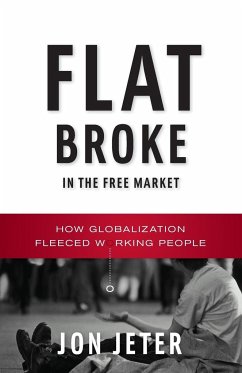Growing up in an African American working-class family in the Midwest, Jon Jeter watched the jobs undergirding a community disappear. As a journalist for the Washington Post (twice a Pulitzer Prize finalist), he reported on the freemarket reforms of the IMF and the World Bank, which in a single generation created a transnational underclass.Led by the United States, nations around the world stopped making things and starting buying them, imbibing a risky cocktail of deindustrialization, privatization, and anti-inflationary monetary policy. Jeter gives the consequences of abstract economic policies a human face, and shows how our chickens are coming home to roost in the form of the subprime mortgage scandal, the food crisis, and the fraying of traditional social bonds (marriage). From Rio de Janeiro to Shanghai to Soweto to Chicago's South Side and Washington, DC, Jeter shows us how the economic prescriptions of "the Washington Consensus" have only deepened poverty-while countries like Chile and Venezuela have flouted the conventional wisdom and prospered.
Hinweis: Dieser Artikel kann nur an eine deutsche Lieferadresse ausgeliefert werden.
Hinweis: Dieser Artikel kann nur an eine deutsche Lieferadresse ausgeliefert werden.








